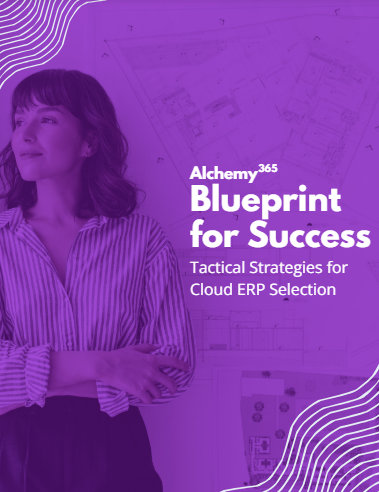How Much Is Licensing Pricing? (per user/month)
When researching cloud ERP cost, user licensing is by far the easiest to find. Even so there are some variations in the pricing of licensing.
The first thing to consider is if your business does any type of manufacturing. User licensing for manufacturing businesses can be slightly higher than businesses that just need finance and operations. A specific example is Microsoft Business Central which offers a Essentials license at $70 user/month and a Premium license at $100 for companies that manufacture products.
Other top providers such as NetSuite, Acumatica and Sage licensing prices are similar. Overall you should expect to spend somewhere between $70 to $150 per user per month for full users. Examples of full users are finance employees, controllers, managers and customer service reps.
Employees that do not need full access to everything and just need things like data, reports, expenses or shared devices in a warehouse/shop floor are significantly less. Expected range for these types of team members should be around $8 to $15 per user per month.
How Much Does Cloud ERP Implementation Cost?
Most of the upfront cloud ERP cost comes from the implementation. Finding how much a cloud ERP vendor charges before setting up a sales call is for some reason virtually impossible. In this section we will provide you the pricing that has seemed to fall into the black hole of the internet.
Cloud ERP is not like a SaaS where you can just plug and play for the monthly user cost. Cloud ERP is combining all of your business processes into one solution and in most cases integration with other business software such as a CRM or an eCommerce platform. It is a time intensive and expensive process.
The best way to think about implementation cost is not a number but in terms of hours. Consultants charge an hourly rate for ERP implementation and your total investment varies on how long it takes the implementation to take place. The range of pricing per hour is somewhere between $225/hr and $275/hr.
Some businesses will give you a discounted rate for paying upfront. For example, here at Alchemy 365 we sell 100 hour blocks for $205/hr and 50 hour blocks for $215/hr. Plenty of other ERP providers offer something similar.
Now I know what everyone is thinking. How many hours does it take? The average number of hours required to implement a cloud ERP can vary significantly based on several factors, including the complexity of the business processes, the size of the organization, the level of customization, and the experience of the implementation team. However, a general estimate can be provided for different types of implementations:
Standard Implementation: For a small to medium-sized business with relatively straightforward requirements, a standard implementation might take approximately 100-200 hours.
Mid-sized Business with Moderate Customization: For a mid-sized business requiring some customization and data migration, the implementation might range from 300-500 hours.
Large Business with Extensive Customization: For a large business with complex processes, extensive customization, and significant data migration needs, the implementation can take 500-1000+ hours.
These estimates are rough and can vary based on the specifics of each project. Based on the numbers above you can expect to spend between $25k to $250k based on your business size and complexities. It is important to keep in mind that this does not include ongoing support which is something we highly recommend to budget for.
Industry Specific Modules
Plenty of industries that need cloud ERP also have industry specific feature needs that are not always available in the out of the box cloud ERP product. Examples of this are seed to sale tracking for cannabis growers, project accounting for construction businesses, recipe management for chemical manufactures, the list goes on and on. If you are in one of these industries that have unique feature needs and unless you go with an industry specific ERP, which has its own pros and cons, you will need industry specific modules.
There are thousands of ISVs (Independent Software Vendors) that provide these feature add-ons to ERP platforms such as Microsoft Business Central, NetSuite, Acumatica, and others. For example Microsoft has an entire AppSource library of ISVs that can provide additional features of add-ons to businesses.
While these products are extremely valuable, they do come at a cost. A good estimate is that these products will cost about a half to a full ERP license value. Which is somewhere in between $50 to $100 per user per month.
Keep a Long Term View
Bottom line is that these were not small numbers we are talking about. The costs can be daunting but it is important to keep in mind the reasons you are searching for a cloud ERP solution. Your business is growing rapidly, you need to scale, automate processes and streamline operations. Keep in mind that an ERP system will reduce your operating and inventory costs by almost 20%! There is no reason why you should forgo ERP implementation due to the cost factor.
If you would like to discuss pricing further or have other cloud ERP questions that have gone unanswered, book a discovery call and we would be happy to discuss your growing business and current challenges.






